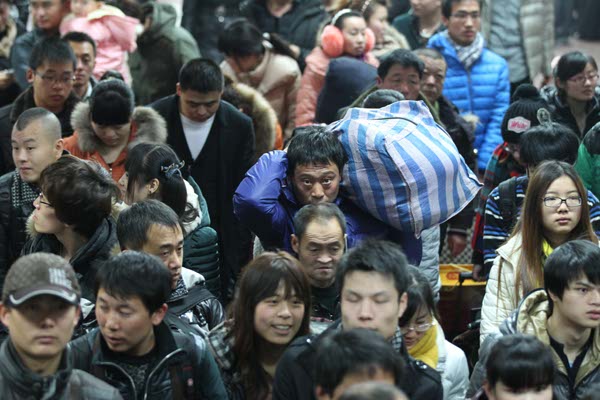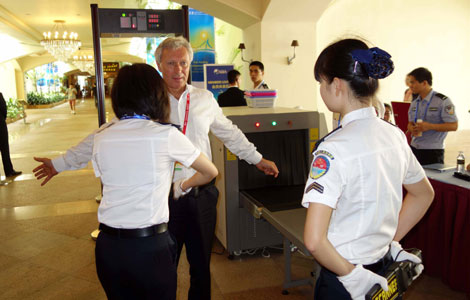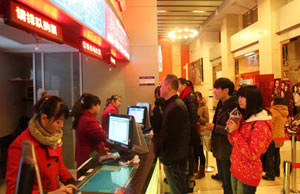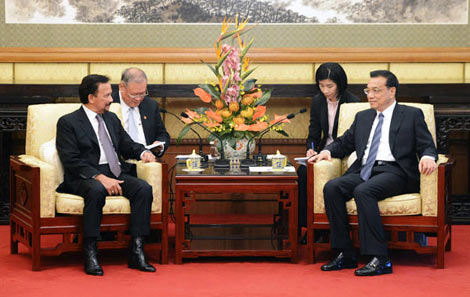
 |
|
Beijing Railway Station on Feb 3 is swarming with people leaving the city to spend the Spring Festival holiday with their families. [Wang Jing / China Daily] |
Flying home
Airports in China will also see their busiest-ever traffic during this year's travel peak.
Nearly 8.8 million trips will be made through the Beijing Capital International Airport, averaging 220,000 each day, a 4.86 percent year-on-year increase, according to airport authority.
Airport workers with tablet computers and printers have been sent to help passengers check in. The practice is proving successful in saving travelers' time and reducing pressure on counters, the airport said.
Travelers to regions that produce many migrant workers and tourist hot spots have more options during the 40-day peak period.
Air China has pledged to add 2,578 flights to major Chinese destinations during the travel peak, and China Southern Airline plans to add more than 5,400 flights.
Carpooling a new trend
In addition to traditional ways of going home, Chinese people have increasingly turned to a comparatively new idea — carpooling.
Yue Hanshi, 52, decided like many others to return home with some new friends who would share expenses in his car.
Yue, who works at a property management company in Guangzhou, Guangdong, said it would be his first time giving others a lift on the way back to his hometown — Jingmen, Hubei province.
"My company said our holiday starts on Feb 7, a bit later than other enterprises, which created problems for me. It was very hard to get a train ticket for that time, and flying is too expensive for me," he said.
"I considered driving back home by myself, but the cost of gasoline and the road tolls made me hesitate," he said. "Then some of my young colleagues suggested I could take some people with me who are going to the same area. I thought it was an interesting idea, and my passengers can share the costs."
He advertised for companions on the Internet and asked anyone who fit his requirements and was interested to give him a call.
"If they call me, I'll be able to verify through their accents that they are from my hometown or nearby. I don't want to take people who will add extra distance to my route because it will take more time and bring unnecessary errands."
Yue also required the passengers to provide their ID cards and pay him 200 yuan each. "I have strict standards about who I take because I don't want my trip ruined by troublemakers," he said.
"And I won't let them drive my Chevrolet because I'm more familiar with my car and can guarantee our safety."
Yue was not alone in sharing cars.
 'Cat model' to dazzle Shanghai auto show 2013
'Cat model' to dazzle Shanghai auto show 2013
 Models at Tokyo modified car show
Models at Tokyo modified car show
 Shanghai Fashion Week focuses on domestic brands
Shanghai Fashion Week focuses on domestic brands
 Angel-dress models at Shandong auto show
Angel-dress models at Shandong auto show
 Safe and Sound
Safe and Sound
 Theater firms scramble for managers
Theater firms scramble for managers
 Premier pledges closer ties with Brunei
Premier pledges closer ties with Brunei
 Volkswagen's all-new GTI at New York auto show
Volkswagen's all-new GTI at New York auto show